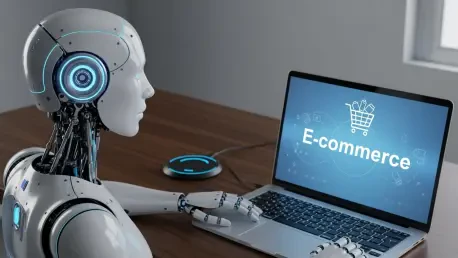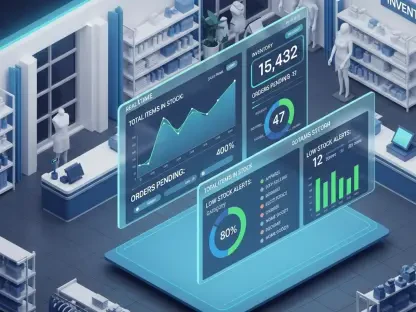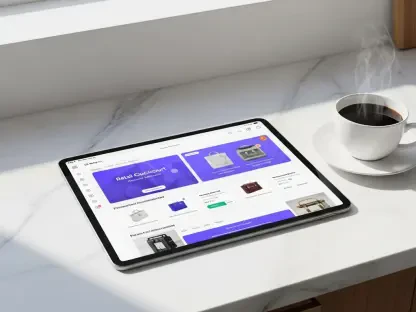Welcome to an exciting conversation with Zainab Hussain, a seasoned e-commerce strategist with a deep background in customer engagement and operations management. With her finger on the pulse of digital retail trends, Zainab offers invaluable insights into the latest innovations shaping online business. Today, we dive into the groundbreaking world of Hostinger Horizons, exploring how its vibe coding tool and new ecommerce integration are revolutionizing website creation and online selling for entrepreneurs everywhere. Our discussion touches on the simplicity of vibe coding, the driving forces behind the ecommerce feature, and how this tool empowers small business owners to thrive in a competitive digital landscape.
How did the concept of vibe coding come about, and what makes Hostinger Horizons stand out in the crowded field of website-building tools?
Vibe coding was born from the idea of making technology truly accessible to everyone, not just those with technical skills. It’s about letting users describe their vision in plain language, almost like chatting with a friend, and having AI turn that into a fully functional website or app. What sets Hostinger Horizons apart is this intuitive approach—there’s no need to learn coding or navigate complex interfaces. It’s instant, user-friendly, and tailored to the user’s unique style and needs, which is a game-changer for non-tech-savvy entrepreneurs.
Why do you think business websites have become the most popular use case for Hostinger Horizons?
Businesses, especially small ones, are always looking for fast and affordable ways to establish an online presence. After analyzing user data, it became clear that about a third of all projects on Hostinger Horizons are business-related. The platform’s simplicity and AI-driven design make it perfect for entrepreneurs who need a professional site without the hassle or high costs of hiring developers. It’s particularly appealing to startups and solopreneurs who want to hit the ground running.
What prompted the launch of the new ecommerce integration at this particular time?
The timing was driven by user demand. After reviewing thousands of user prompts, we saw a clear trend—many of our clients wanted to sell online but found the process too complicated. This feedback pushed us to prioritize an ecommerce solution that could simplify setting up a store. The goal was to address these needs head-on and ensure our users could tap into the massive online shopping market without getting bogged down by technical barriers.
Can you walk us through how this ecommerce integration makes setting up an online store easier for users?
Absolutely. The integration pops up right within the Hostinger Horizons interface, so there’s no need for external tools or coding. Users can add products, set up secure payment options, configure shipping, manage inventory, and even handle taxes or discounts—all from one place. It supports up to 600 products without extra fees, which is huge for small businesses. Everything is manual and unlimited, so users aren’t nickel-and-dimed for updates, making the process seamless and stress-free.
Before this update, what were some of the biggest challenges users faced when trying to build an online store with AI tools?
Prior to this integration, creating an online store was a real headache for many. Users had to manually piece together every element—product databases, payment systems, shipping options—which often meant using dozens of paid AI prompts or grappling with technical know-how. It could take hours or even days to get a store up and running, especially for those unfamiliar with ecommerce logistics. The complexity was a major barrier, particularly for non-technical users just trying to get their products online.
How did collaborating with the Hostinger Website Builder team help shape this ecommerce feature?
Working with the Website Builder team was a natural fit because they already had a robust ecommerce engine in place. Their expertise allowed us to integrate a proven solution rather than building something from scratch. The collaboration focused on ensuring the feature felt seamless within Horizons—our teams worked closely to align the user experience, making sure it was as intuitive as vibe coding itself. It was about blending their technical strength with our user-centric design.
Why was it important to make store management manual and unlimited, without requiring paid AI messages for updates?
We wanted to remove any financial or time barriers for our users. On many platforms, every update or tweak requires paid AI interactions, which adds up quickly. By making store management manual and unlimited, users can update product listings, adjust pricing, or manage orders as often as they need without extra costs. This approach saves money and gives business owners full control, which is critical when you’re running a small operation on a tight budget.
What is your forecast for the future of AI-driven ecommerce tools like Hostinger Horizons?
I think we’re just scratching the surface of what AI can do for ecommerce. In the coming years, I expect these tools to become even more personalized, anticipating user needs before they even articulate them. We’ll likely see deeper integrations with marketing, analytics, and customer engagement features, all powered by AI to help small businesses compete with bigger players. The focus will be on making the entire online selling process—from setup to scaling—feel effortless, and platforms like Hostinger Horizons will lead the charge by continuing to prioritize user experience and accessibility.









